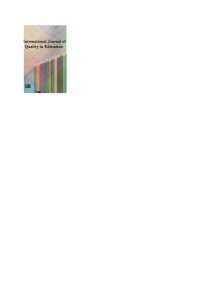ANALYZING THE FACTORS INFLUENCING THE PRIMARY SCHOOL STUDENTS’ DIGITAL LITERACY SKILLS DURING COVID-19 PERIOD
Abstract
Digital literacy of primary school pupils is a much-debated issue. Some argue that it enhances the development of children at an early stage of primary education; however, others are rather skeptical. The aim of this paper is to emphasize selected factors that affect the level of digital literacy of pupils in primary education. The presented study is conceived as qualitative research with the usage of the case study method in its center. The research was conducted during the Covid-19 period in 2020. All respondents were born between 2009 and 2010. Families were deliberately chosen to copy the level of education attained by the distribution of this parameter in the Czech Republic. First, we provide the theoretical background to support our approach towards the research. A total of five children attending the fifth grade of primary school were included in the research. Subsequently, based on our results from qualitative research, we discuss factors that affect pupils' digital literacy. Findings of conducted case studies show that the way in which households are equipped with information technology devices influences the final digital literacy of pupils in the first stage of primary schools and, conversely, socio-demographic factors do not have an impact on pupils' level of knowledge and skills in the use of ICT.
References
- Arrow, A.V. & Finch, B.T. (2013). Multimedia literacy practices in beginning classrooms and at home: the differences in practices and beliefs. Literacy, Vol. 47, Issue 3, pp. 131-141.
- Baron, D. & Wright, T.E. (2008). Literacy Instruction With Digital and Media Technologies. Reading Teacher. Vol. 62, Issue 4, pp. 292-303.
- Bjørgen, A.M & Erstad, O. (2015) The connected child: tracing digital literacy from school to leisure, Pedagogies: An International Journal, Vol. 10, issue 2, pp. 113-127.
- Círus, L., Maněnová, M. & Škoda, J. (2019) Teachers' attitudes towards ICT and their reflection in the pupils´digital literacy. Ústí nad Labem: Educa PF UJEP.
- Chaudron, S. et al. (2015) Young Children (0-8) and digital technology: A qualitative exploratory study across seven countries. Retriever from http://publications.jrc.ec.europa.eu/repository/bitstream/JRC110359/jrc110359_young_children_online.pdf
- Craft, A (2012). Childhood in a digital age: creative challenges for educational futures. London Review of Education, Vol. 10, Issue 2, pp. 173-190.
- Cresswell, J.W. (2014). Research design: qualitative, quantitative, and mixed methods approaches, Los Angeles: Sage.
- Digital Literacy, Libraries, and Public Policy: Report of the Office for Information technology Policy Digital Literacy Task Force (2013). American Library Association. Retriever from http://www.districtdispatch.org/wpcontent/uploads/2013/01/2012_OITP_digilitreport_1_22_13.pdf
- Flewitt, R., Messer, D. & Kucirkova, N. (2014). New directions for early literacy in a digital age: The iPad. Journal of Early Childhood Literacy, Vol. 15, issue 3, pp. 289–310.
- Hsin, Ch.T., Lin, M.Ch. & Tsai, Ch.Ch. (2014). The Influence of Young Children's Use of Technology on Their Learning: A Review. Journal of Educational Technology & Society, Vol. 17, Issue 4, pp. 85-99
- Learning to Change: ICT in Schools (2001). OECD. Retrieved from https://www.oecd.org/site/schoolingfortomorrowknowledgebase/themes/ict/learningtochangeictinschools.htm
- Kabadayi A. (2006). Analyzing Preschool Student Teachers’ and Their CooperatingTeachers’ Attitudes towards the Use of Educational Technology. The Turkish Online Journal ofEducational Technology – TOJET, , 5(4).
- Kabadayi A. (2012). Investigating pre-service preschool teachers' attitudes to internet use. Croatian Journal of Education, 14(2), 235-255.
- Romero, M. (2014). Digital literacy for parents of the 21st century children. Elearning Papers, Vol. 38, pp. 32-40.
- Silverman, D. (2013). Doing Qualitative Research. London: Sage.
- Simpson, A., Walsh, M. & Rowsell, J. (2013). The digital reading path: researching modes and multidirectionality with iPads. Literacy, Vol. 47, Issue 3, pp. 123-130.
- Tran, T. & Ciccarelli, M. (2012). Primary school children's knowledge of, and attitudes towards, healthy computer use. Work. IOS Press and the authors, 41(2), 863-868. Retrieved from http://content.iospress.com/download/work/wor0255?id=work%2Fwor0255
- Yin, R. (2011). Qualitative Research from Start to Finish, New York & London, The Guilford Press.
Details
| Primary Language | English |
|---|---|
| Subjects | Studies on Education |
| Journal Section | Articles |
| Authors | |
| Publication Date | March 12, 2021 |
| Submission Date | September 16, 2020 |
| Published in Issue | Year 2021 Volume: 5 Issue: 1 |


